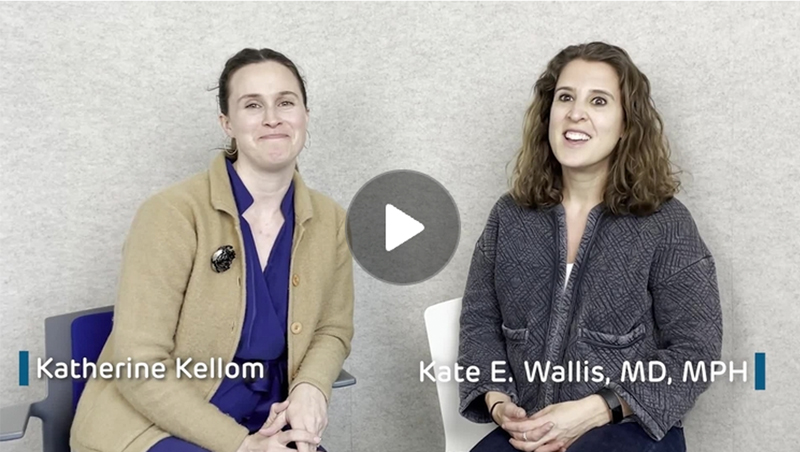Understanding the Experiences in Telemedicine for Children with Suspected Autism Spectrum Disorder in Developmental-Behavioral Pediatrics During the COVID-19 Pandemic
Statement of Problem
Due to the COVID-19 pandemic, many developmental-behavioral pediatric (DBP) practices expanded their telehealth use to allow for evaluations and care for children with developmental differences. In fact, a recent survey conducted by our group, published in the Journal of Developmental and Behavioral Pediatrics, found 100% of national DBP fellowship-associated practice locations offered video-based telehealth during the pandemic, with almost 90% performing home-based evaluations for young children with suspected autism spectrum disorder (ASD).
Emerging evidence illustrates that telehealth appointments, or video assessments, for autism can be effective. However, we do not yet know how this type of assessment is received by providers and families.
Description
Through a multi-methods approach, our team is working to detail the experiences of families and providers who utilize, and determine the acceptability, benefits of, and concerns raised by the use of telehealth for these types of evaluations. To do this, we are going straight to the experts—conducting qualitative, phone-based interviews in English or Spanish with DBPs and caregivers of children with suspected ASD who have had a recent telehealth experience. In order to capture a wide range of experiences, we are utilizing the Developmental Behavioral Pediatrics Research Network (DBPNet), a network of academic DBP practices, to recruit eligible participants for our study.
A primary goal of this work is to ensure health care and health care access is more equitable for families. While many researchers choose to include only English-speaking families, we are inviting Spanish-speaking families to participate and have translated our study materials into Spanish.
In one multi-methods study of providers and caregivers of children up to 5 years of age who participated in telehealth assessments for autism, we surveyed 13 DBP clinicians and 22 caregivers across four national DBP practices. From that group, we then interviewed 12 DBP clinicians and 14 caregivers to better understand their experiences. Unfortunately, we were unsuccessful in recruiting any Spanish-speaking families, so we were not able to explore their perspectives.
All DBP clinicians and most caregivers reported high acceptance of and satisfaction with telehealth for autism assessments. Both groups reported that components of the visit are well suited to telehealth and want telehealth to be an option for care in the future. Overall, interviewees discussed benefits of telehealth related to the context of the home environment, engaging families in the diagnostic process, and removing travel barriers. Participants described that telehealth also introduced barriers for some families, including those with limited technological access or understanding, those with preference for a language other than English (PLOE) and those without access to a private space.

To better understand telehealth use among populations with PLOE in greater detail, we conducted a follow up study in which we examined electronic health record data at four academic DBP practices in various regions of the U.S. We examined visits for patients up to 5 years of age, seen for new-patient appointments between April 2020 and April 2021. There were a total of 3,241 visits; 48.2% were conducted in person and 51.8% by telemedicine. During the height of the pandemic, most English-speaking families were seen for new DBP evaluations by telehealth, but fewer families with PLOE were. In fact, English-speaking patients had 1.80 times the odds of being seen by telehealth compared to patients with PLOE.
The reasons behind low uptake of telehealth among families with PLOE should be further explored. Ongoing attention should be paid to promote language equity in access to DBP care overall, and to further understand issues of access to and acceptability of telehealth for families with PLOE.
Next Steps
Our hope is that findings from these studies can be used to inform the ongoing role of telehealth in developmental and behavioral pediatrics (DBP). As we emerge from the COVID-19-pandemic, the future of telehealth and payment for telehealth remain in question. Our work has clearly demonstrated that families and providers desire telehealth options for autism-related care. However, equity concerns, especially barriers to telehealth care for children from families who speak a language other than English, must continue to be centered and addressed. These findings can be used to inform public and private payers and policymakers to continue to promote access to telehealth in DBP care.
This project page was last updated in June 2023.
Suggested Citation
Children's Hospital of Philadelphia, PolicyLab. Understanding the Experiences in Telemedicine for Children with Suspected Autism Spectrum Disorder in Developmental-Behavioral Pediatrics During the COVID-19 Pandemic [Online]. Available at: http://www.policylab.chop.edu [Accessed: plug in date accessed here].